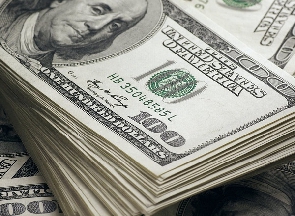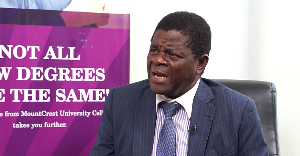The value of dollar deposits in commercial banks climbed to a new all-time high of Ksh1.185 trillion ($8.3 million) by the end of June on the back of the depreciating shilling, rewarding account holders with double-digit capital gains on their hard currency stock.
New data from the Central Bank of Kenya (CBK) shows that the shilling equivalent of these deposits rose by Ksh93 billion ($651.72) in June alone, boosting the year-to-date growth in value to 28.7 per cent or Ksh264 billion ($1.85 billion).
While part of the jump in value is due to a growth in the actual stock of dollars, analysts reckon that the depreciation of the shilling against hard currencies is the biggest contributor.
Since the beginning of the year, the shilling has depreciated by 13.5 percent against the dollar, by 18.5 percent against the British pound and by 16.1 percent versus the euro.
The shilling has mainly suffered from a stronger dollar as the US Federal Reserve hikes interest rates to fight inflation.
The rate hikes tend to spark dollar outflows to safe havens in the developed world, increasing demand for the greenback and depressing the value of the local currency.
“The deposits have been more or less stable, but because of the shilling weakness, there is a rise in their value in local currency terms. It is more of a valuation issue,” said Churchill Ogutu, an economist at IC Asset Managers (Mauritius).
CBK data on actual dollar stockpiles—available for the first quarter of the year—shows a divergence in the rate of growth of the hard currency and its shilling value.
For instance, between February and March, the amount of hard currency deposits dropped from $8.09 billion (Ksh1.15 trillion) to $7.76 billion (Ksh1.11 trillion), but their value in shillings rose from Ksh987.7 billion ($6.92 billion) to Ksh1.058 trillion ($7.41 billion).
The sharper climb in value in June compared to the other months however shows that depositors are beginning to stockpile dollars, mainly as a hedge against possible future forex market shocks.
Corporates account for about 70 percent of Kenya’s dollar deposits, with the rest in the hands of households, indicating that the bulk is not held for speculative purposes.
Bulk buyers have recently sought a buffer of dollars following a shortage of the US currency in the first quarter of the year due to hitches in the interbank forex market that had become dormant in recent years.
Those hedging are also covering against forex losses should they need to buy dollars down the road, taking into account the continued depreciation of the shilling.
Looking forward, dollar demand is set to go up as payments for the government-to-government oil import deal falls due next month.
Corporates including Safaricom are also due to repatriate millions of dollars abroad in dividends to their foreign shareholders, exerting pressure on the forex market.
Africa Business News of Thursday, 3 August 2023
Source: theeastafrican.co.ke

















